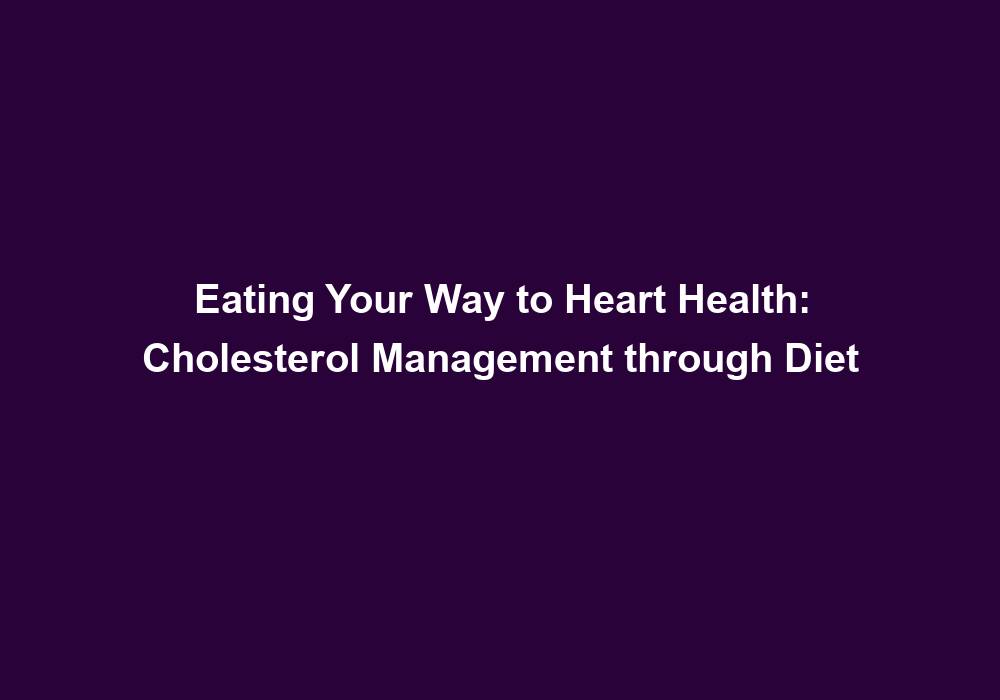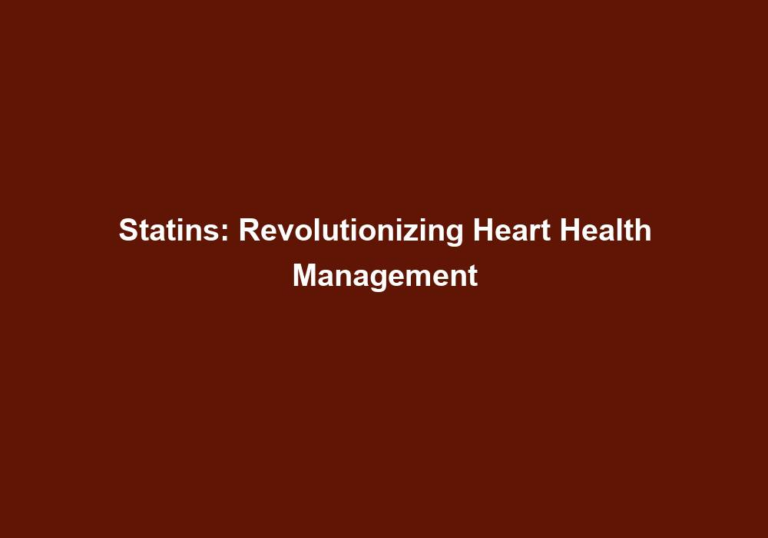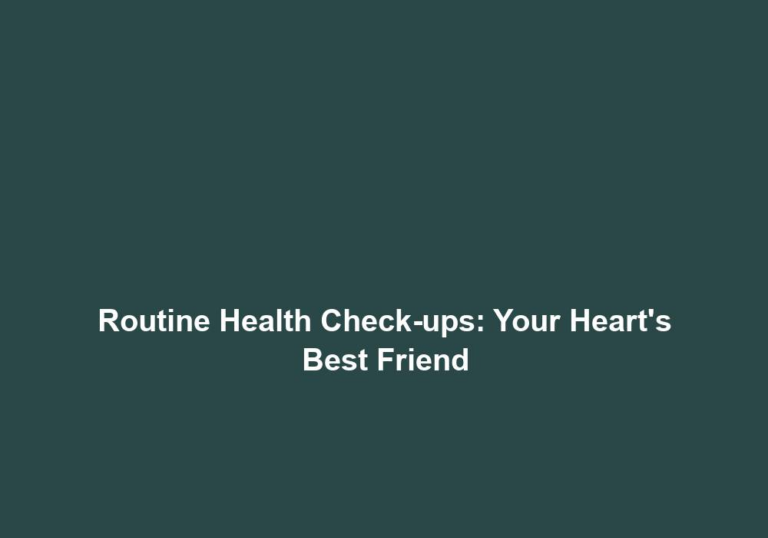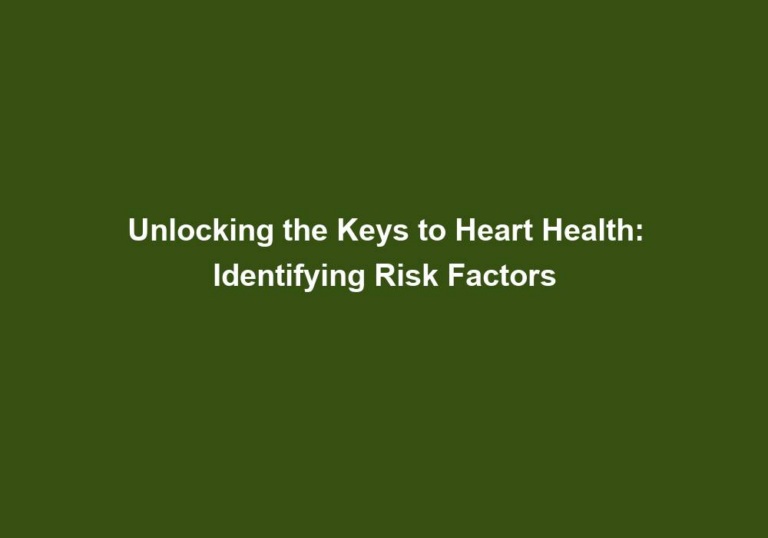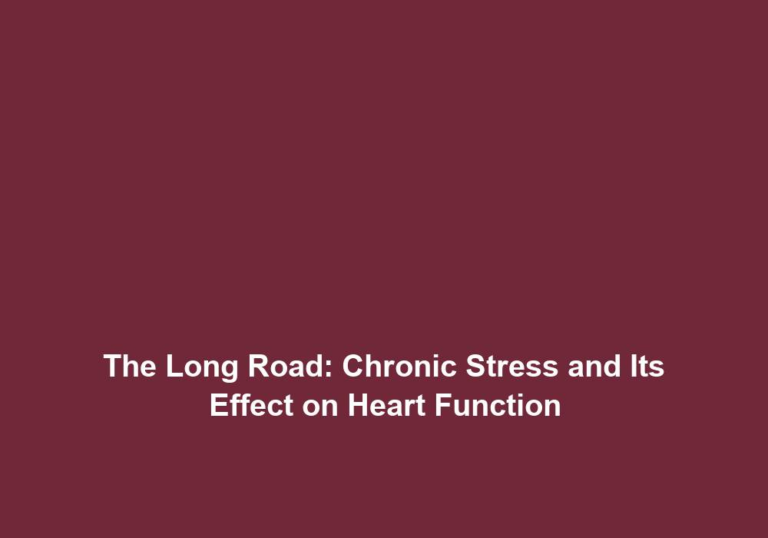Eating Your Way to Heart Health: Cholesterol Management through Diet
Maintaining a healthy heart is crucial for overall well-being, and one of the most effective ways to achieve this is through a well-balanced diet. Diet plays a significant role in managing cholesterol levels, which directly impacts heart health. By making smart food choices, you can actively reduce your risk of heart disease and promote a healthier lifestyle. In this article, we will explore the importance of cholesterol management through diet and provide valuable insights into foods that can help you eat your way to a healthier heart.
Understanding Cholesterol and Its Impact on Heart Health
Before we delve into the dietary aspect, it is essential to understand the role of cholesterol and its impact on heart health. Cholesterol is a waxy, fat-like substance found in the cells of our body. While it is necessary for various bodily functions, excessive levels of cholesterol can lead to the formation of plaque in our arteries, restricting blood flow and increasing the risk of heart disease.
There are two types of cholesterol: low-density lipoprotein (LDL) and high-density lipoprotein (HDL). LDL cholesterol is often referred to as bad cholesterol as it tends to build up in the arteries, while HDL cholesterol is known as good cholesterol as it helps remove excess cholesterol from the bloodstream. Keeping LDL cholesterol levels in check while maintaining or increasing HDL cholesterol levels is essential for a healthy heart.
The Role of Diet in Cholesterol Management
A well-balanced diet plays a pivotal role in managing cholesterol levels and promoting heart health. By making conscious food choices, you can positively impact your cholesterol profile. Here are some key dietary recommendations to consider:
1. Incorporate Heart-Healthy Fats
Incorporating heart-healthy fats into your diet can help improve your cholesterol levels. Opt for monounsaturated fats found in olive oil, avocados, and nuts, as well as polyunsaturated fats found in fatty fish like salmon and mackerel. These fats not only help lower LDL cholesterol but also increase HDL cholesterol levels. Including these fats in your diet provides a source of essential fatty acids, which are important for overall health.
2. Increase Fiber Intake
Dietary fiber is crucial for maintaining healthy cholesterol levels. Soluble fiber, in particular, can effectively lower LDL cholesterol levels. Foods rich in soluble fiber include oats, barley, legumes, fruits, and vegetables. These foods also provide other essential nutrients and contribute to overall heart health. Aim to include these fiber-rich foods in your daily meals and consider incorporating whole grains into your diet as well.
3. Choose Lean Proteins
When it comes to protein, opt for lean sources such as skinless poultry, fish, legumes, and low-fat dairy products. These protein sources are not only low in saturated and trans fats but also provide essential amino acids necessary for various bodily functions. Avoid high-fat meats and processed meats as they tend to be high in saturated and trans fats, which can raise LDL cholesterol levels.
4. Be Mindful of Saturated and Trans Fats
Saturated and trans fats are known to increase LDL cholesterol levels, which can be detrimental to heart health. Limit your intake of foods high in saturated fats such as red meat, full-fat dairy products, and fried foods. Instead, opt for healthier alternatives like lean cuts of meat, low-fat dairy products, and cooking methods such as baking, grilling, or steaming. Also, avoid foods containing trans fats, such as commercially baked goods, snack foods, and margarine.
5. Include Omega-3 Fatty Acids
Omega-3 fatty acids are beneficial for heart health as they can help lower LDL cholesterol and triglyceride levels. Incorporate omega-3-rich foods like fatty fish (salmon, mackerel, sardines), flaxseeds, chia seeds, and walnuts into your diet. These foods provide a good source of omega-3 fatty acids, which have anti-inflammatory properties and contribute to overall heart health. If necessary, consider omega-3 supplements after consulting with your healthcare provider.
6. Embrace Plant Sterols
Plant sterols are compounds found in plants that can help lower LDL cholesterol levels. They work by blocking the absorption of cholesterol from the digestive system. Foods fortified with plant sterols, such as certain margarines and plant-based spreads, can be a valuable addition to your cholesterol-lowering diet. Incorporating these foods into your daily routine can have a positive impact on your cholesterol levels and overall heart health.
7. Limit Added Sugars and Refined Carbohydrates
High sugar intake and consumption of refined carbohydrates can negatively impact cholesterol levels. These foods tend to be low in nutrients and high in calories, leading to weight gain and increased cholesterol levels. Reduce your consumption of sugary drinks, sweets, and processed snacks. Instead, choose whole grains like brown rice, quinoa, and whole-wheat bread, which provide more fiber, vitamins, and minerals. These complex carbohydrates can help regulate blood sugar levels and contribute to a healthier heart.
8. Include Antioxidant-Rich Foods
Antioxidants can help prevent the oxidation of LDL cholesterol, which is a crucial step in the development of plaque in the arteries. Blueberries, strawberries, dark chocolate, green leafy vegetables, and green tea are excellent sources of antioxidants. Including these foods in your diet can contribute to better heart health. Aim to incorporate a variety of antioxidant-rich foods into your meals and snacks to maximize their benefits.
By incorporating these dietary recommendations into your lifestyle, you can effectively manage your cholesterol levels and promote heart health. Remember, consistency is key, and making long-term dietary changes is more beneficial than short-term fixes. It is important to note that individual needs may vary, so consulting with a healthcare professional or a registered dietitian is recommended for personalized advice and guidance on managing cholesterol through diet. Eat your way to a healthier heart and embrace a well-balanced, cholesterol-lowering diet for a brighter and healthier future.

